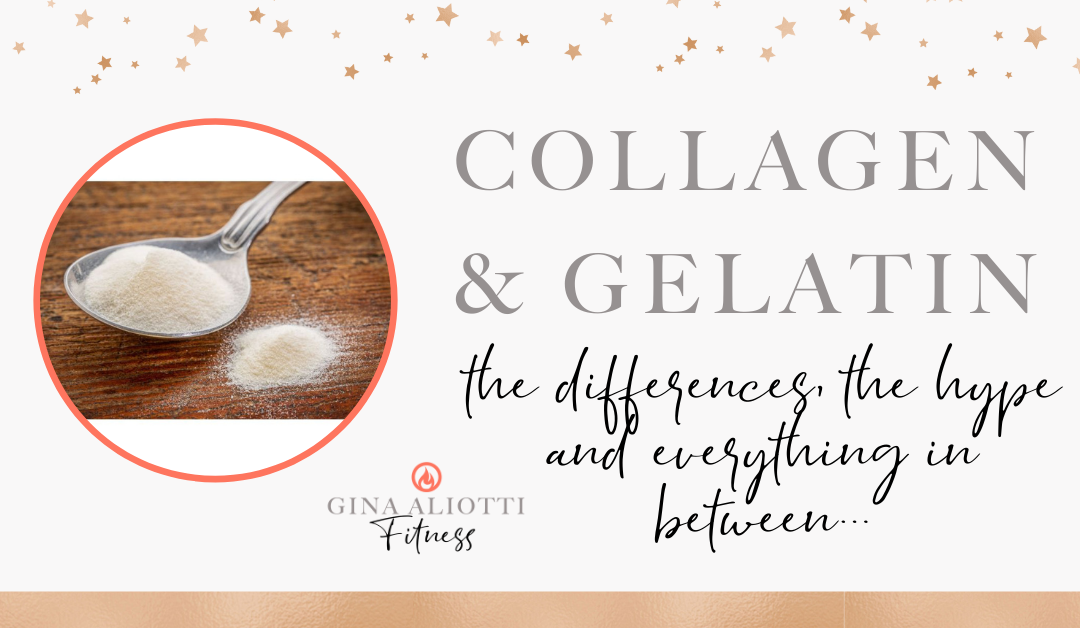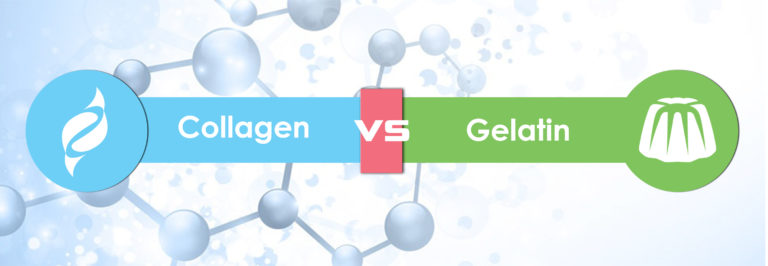
So there is a big difference in the original form of the protein, particularly with hydrolysation.

But peptides absorb even faster than aminos.
#COLLAGEN VS GELATIN THM FREE#
To illustrate: free aminos absorb much faster than undenatured proteins. The length and combination of the aminos in the peptide have a large bearing on the bioactivity of the peptide. Hydrolyzing can break the protein down into just several aminos, making a peptide of, say, three aminos. This means that if you want to use collagen for baking or making sauces, you should opt for gelatin instead since it will give your dish a smooth texture without altering the flavor too much.I was using protein powders there for a quite a while, and there is a huge difference between between a hydrolyzed protein and otherwise.Ī protein can be a long chain of amino acids. The Difference Between Collagen and Gelatin The main difference between collagen and gelatin lies in their solubility-collagen does not dissolve in water while gelatin does dissolve easily and create a thickening effect when mixed with liquids. Also due to its molecular structure, collagen provides more protein per gram compared to gelatin making it ideal for those looking for an extra boost in their daily protein intake. In addition to this difference in amino acid composition, collagen also contains higher levels of glycine compared to gelatin making it more suitable for those looking for an additional source of this amino acid. Gelatin is derived from collagen collagen contains 19 amino acids while gelatin only has 18 amino acids due to the lack of hydroxyproline in its composition. Gelatin forms a gel-like substance when mixed with liquid-this makes it ideal for using in recipes like homemade gummies or marshmallows. Gelatin has many of the same health benefits as collagen because it contains the same amino acids-the difference lies in how they interact with other ingredients when cooking. Gelatin supplements are essentially cooked down collagen that has been broken down into smaller pieces called peptides.

Unlike collagen which does not break down at high temperatures, gelatin will break down if heated too quickly or too much so it requires a gentle heat over a longer period of time for best results. Gelatin dissolves easily in hot water but congeals when cooled making it ideal for many culinary applications such as jello desserts or marshmallows. While collagen consists of three intertwined fibers, gelatin only consists of one fiber which makes it less resilient than its cousin collagen. Gelatin is derived from collagen but has a different molecular make-up than collagen does.

It can also be taken as a supplement in powder form for those who want to increase their daily intake of collagen. Collagen can be found in animal-derived foods like beef, pork, fish, and chicken. It is made up of amino acids like glycine, proline, hydroxyproline, and arginine. Let’s take a closer look at the differences between these two unique proteins.Ĭollagen is the most abundant protein found in mammals and is essential for healthy skin, bones, muscles, and tendons. Have you ever heard of collagen or gelatin but weren’t quite sure what they are or how they differ? Collagen and gelatin are related, but there are some key differences between them that make them great ingredients to use in different applications.


 0 kommentar(er)
0 kommentar(er)
